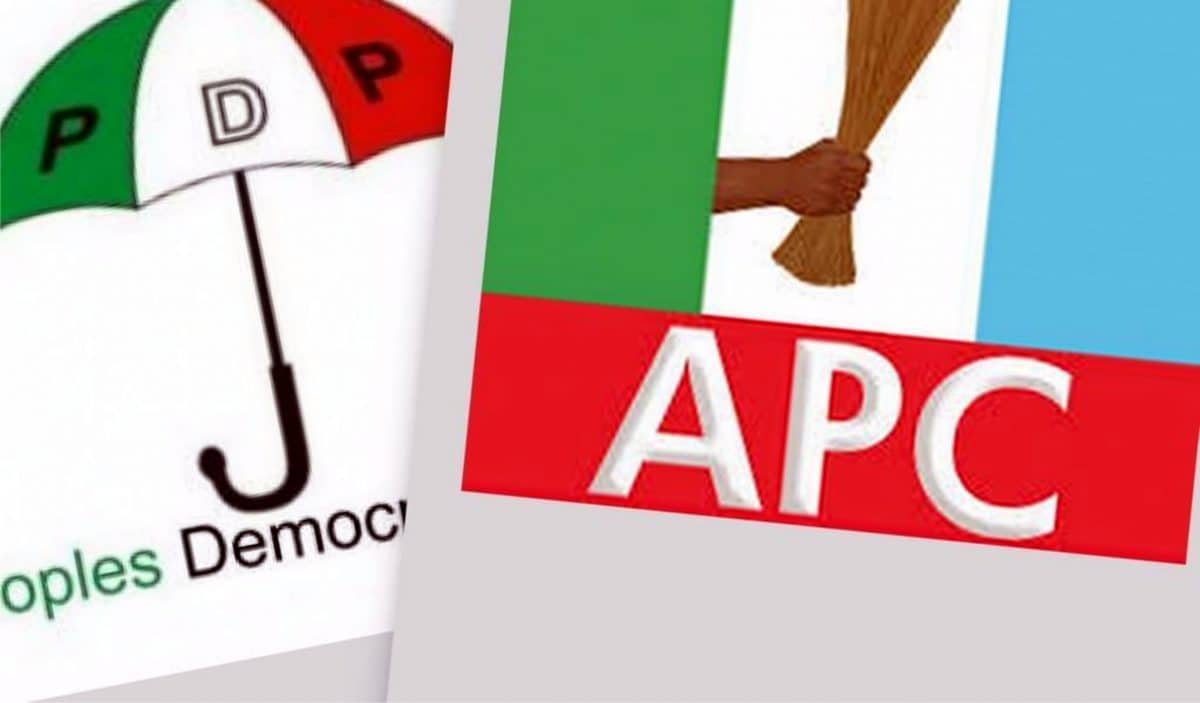Fuss over the vice-presidential ticket
A visitor from elsewhere to this country would be bewildered by how we fuss over small details affecting candidates to be presented for elections. It seems to be a perennial virus that affects our politicians at election times, without exception. On the presidential ticket, stakeholders in both the Peoples Democratic Party (PDP) and the All Progressives […]

A visitor from elsewhere to this country would be bewildered by how we fuss over small details affecting candidates to be presented for elections. It seems to be a perennial virus that affects our politicians at election times, without exception. On the presidential ticket, stakeholders in both the Peoples Democratic Party (PDP) and the All Progressives Congress (APC), the two leading parties, bickered endlessly about whether the ticket should go to the North or the South, not minding the pedigree and capacity of the candidate to deliver when elected. When enough hairs had been split on such a very mundane issue and presidential candidates have emerged, the same kind of battle is taken to the selection of a vice-presidential candidate.
The PDP was the first to name its vice-presidential candidate and the furore it raised is yet to die down. A major stakeholder in the PDP whose vast resources could be crucial to the success of the campaigns flew out of the country in tantrums over the selection of the vice-presidential candidate. He had campaigned to be the presidential candidate and failing that he thought he would be offered the vice-presidential ticket and when that didn’t happen, he became inconsolable. Well, he is now back in the country but curiously enough he has kept himself rather estranged from party affairs amidst rumors that other parties are falling over themselves to attract him to their fold.
Now when it came to the turn of the APC to name a vice-presidential candidate the uproar was even louder. This time a few sour contenders immediately went out to the field crying foul and decrying the marginalisation of their group. They clothed the declared candidate for the vice-presidential ticket in a religious toga and went ahead to endlessly vilify him from every rooftop. The two most prominent protagonists, Babachir Lawan and Daniel Bwala, have been part and parcel of the very top hierarchy of the party. Unfortunately, Babachir, who was Secretary to the Government of the Federation (SGF) at the inception of the APC, regime suffered a humiliating reversal when he was removed from that perch on the strength of an allegation over contract misdemeanours now popularly known as ‘the grass-cutting contract saga’. He went under for years. On the other hand, Daniel Bwala had all along been very visible in the media and I have always admired his strong advocacy on behalf of his party whenever and wherever the occasion arose. That’s why I have found it rather strange that the duo has been spewing so much bile on a matter that they could have negotiated within their party. As it is now it looks like they are not just leaving the party but cutting the umbilical cord tying them to their larger community.
About the same time, as these recriminations were unfolding here, we were also watching a similar contest taking place in the United Kingdom. Boris Johnson the leader of the Conservative Party and Prime Minister, had resigned due to some perceived infractions which led to public opprobrium and as a result loss in by-elections for the party. Consequently, members of his cabinet resigned in droves leaving him in an untenable position and he had to throw in the towel. The Conservative Party is now in the process of electing another leader to replace Boris Johnson and many leading party members have thrown their hats into the ring. The process is getting to an end with five contenders as finalists.
Out of the five, the leading candidate Rishi Sunak, the former Chancellor of the Exchequer, is of Indian origin though born and raised in the UK. Another strong candidate is Kemi Badenoch, nee Adegoke, also a former minister of state who is obviously of Nigerian origin though also born and bred in Britain. I followed the contest keenly from the onset and I could see that the candidates were being judged by their pedigree in the party, their competence as ministers or whatever, and their aspirations for the party and country. Not a whimper about their religious beliefs or where their parents came from.
And here we are in this country, in this 21st Century subjecting the selection of party candidates to be presented for national elections to what religion they are affiliated to. The candidates presented by the two leading parties should be cause for celebration this time. They are all accomplished public servants. Atiku Abubakar the presidential candidate of the PDP was once the vice-president in an administration that consolidated democracy and engineered various positive changes in Nigeria’s public service. Bola Tinubu the candidate of the APC has been hailed as a transformative governor of Lagos State and other parts of the south west states where he was looked upon as a leader.
Their vice-presidential candidates are equally formidable. Ifeanyi Okowa of the PDP was known as a consensus-building governor in restive Delta State. Kashim Shettima of the APC was also a transformative governor of Borno State. When he became governor in 2012, the state was hostage to Boko Haram insurgents on a destruction spree. By the time he handed over to his faithful successor in 2019 the insurgents have been severely degraded, and educational and other infrastructure rebuilt in most parts of the state.
We should subject these candidates to proper scrutiny and not continue to weigh them on an ethnic and religious scale.
